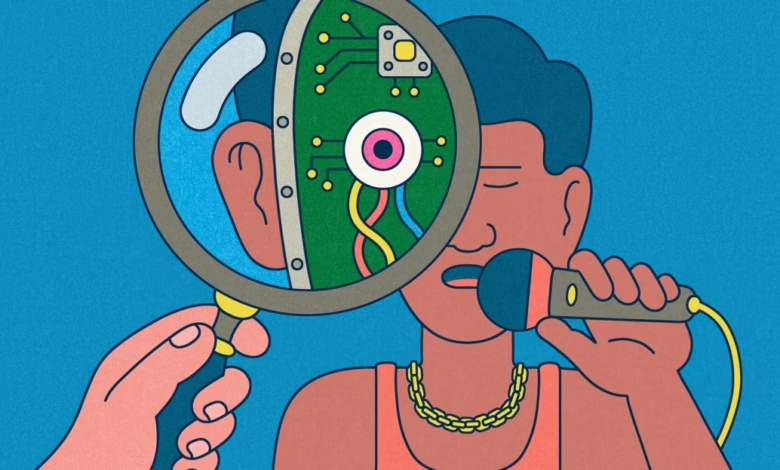Music Industry Develops Tech to Detect AI-Generated Songs

▼ Summary
– A fake AI-generated Drake and The Weeknd duet, “Heart on My Sleeve,” went viral in 2023, exposing the lack of control over synthetic music.
– The music industry is developing traceable infrastructure to detect and tag AI-generated content early, embedding systems across training, distribution, and licensing workflows.
– Companies like Vermillio and Musical AI are creating tools to identify AI-generated elements in tracks and enable proactive licensing, aiming to replace reactive systems like YouTube’s Content ID.
– Some platforms, like Deezer, are flagging AI-generated uploads and reducing their visibility in recommendations, with plans to label such content for users soon.
– Spawning AI’s “Do Not Train Protocol” allows artists to opt out of AI training datasets, but adoption and standardization remain fragmented without independent governance.
The music industry is racing to develop advanced detection systems that can identify AI-generated songs before they go viral, shifting from reactive takedowns to proactive licensing solutions. What began as panic over convincing deepfake tracks like the unauthorized Drake and The Weeknd collaboration has evolved into a coordinated effort to embed traceability into every stage of music creation and distribution.
Rather than playing whack-a-mole with synthetic tracks after they spread, companies are integrating detection tools directly into production pipelines, streaming platforms, and rights management systems. The focus is on tagging AI-generated content early, whether in training datasets, during song creation, or at upload, so rights holders can manage its use before release. Startups like Vermillio and Musical AI are leading the charge with metadata-based identification systems that analyze vocal patterns, melodic phrasing, and other audio components to pinpoint synthetic elements.
Vermillio’s TraceID takes this a step further by dissecting songs into individual stems, allowing rights holders to detect AI mimicry even when only fragments of a track borrow from protected material. Unlike traditional content-matching systems, which struggle with partial imitations, TraceID aims to facilitate licensing upfront rather than disputes after the fact. The company predicts authenticated licensing revenue could skyrocket from $75 million to $10 billion within two years as the industry adopts these tools.
Meanwhile, platforms like Deezer are deploying internal filters to flag AI-generated uploads and limit their algorithmic reach. The streaming service reports that fully synthetic tracks now account for 20% of daily uploads, a sharp increase from earlier this year. While these tracks remain available, they’re excluded from recommendations unless properly licensed. Deezer plans to introduce user-facing labels soon, clarifying which songs are AI-assisted.
The push for transparency extends to training data itself. Spawning AI’s Do Not Train Protocol lets artists opt out of having their work used in AI models, though adoption remains uneven without industry-wide standards. Critics argue such systems need independent oversight to ensure fairness, as relying on opaque corporate policies risks undermining trust.
“Attribution shouldn’t start when the song is done, it should start when the model starts learning,” says Sean Power of Musical AI, emphasizing the need to track creative influence from the earliest stages. This approach could reshape licensing by quantifying how much a generated track borrows from specific artists, potentially avoiding legal battles like the infamous “Blurred Lines” case.
While the technology is still evolving, the broader strategy is clear: the music industry isn’t trying to eliminate AI-generated content, it’s building infrastructure to control and monetize it. Whether through metadata tagging, dataset restrictions, or platform-level filtering, the goal is to ensure synthetic music benefits creators rather than exploiting them. The question now is whether these solutions can scale fast enough to keep pace with AI’s rapid advancements.
(Source: The Verge)
